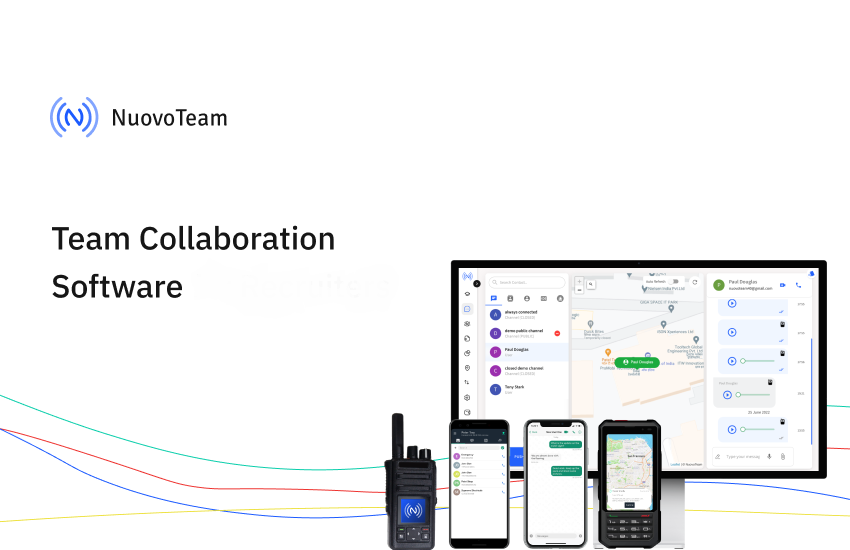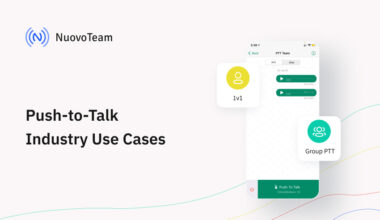In this world full of businesses around us, accounting as a main sector has evolved due to the advancement of technologies. And the biggest and most important change is the collaboration tool. Yes, collaboration tools have changed the way organizations work, and all professionals work, and it even saves the time of an individual.
So in this blog, we will explore what are the benefits of these collaboration tools in this modern world of accounting and why is it important to use collaboration tools.
1. Improved Communication
Communicating clearly and effectively is very important in the accounting area. Collaboration tools have a platform that allows you to easily communicate in a particular period. There are various kinds of business tools for startups such as Slack, Microsoft Teams, and Zoom, which have features for messaging, video calls, meetings, sharing files, and much more.
- Instant Messaging: Team members can quickly ask questions and receive answers without the delay of emails. This speeds up decision-making and problem-solving.
- Video Conferencing: Face-to-face meetings can be held virtually, allowing for more personal interaction, which can be important for discussing complex financial issues.
- File Sharing: Important documents can be shared instantly, ensuring everyone has access to the most up-to-date information.
2. Enhanced Collaboration
Collaboration is an essential aspect of accounting, especially in leading IT companies. Teamwork plays a crucial role in generating reports, conducting audits, managing financial aspects, and more. With the help of collaboration tools, the entire team can work together and discuss important matters, even when located in different cities, states, or countries. This seamless communication enhances efficiency and ensures that all team members are aligned, regardless of their geographical locations.
- Real-Time Editing: Tools like Google Drive and Microsoft OneDrive allow multiple people to work on the same document simultaneously. Changes are saved in real-time, reducing the risk of errors and ensuring consistency.
- Task Management: Platforms such as Asana and Trello help teams keep track of tasks and deadlines. This ensures that everyone knows what they need to do and when it needs to be done, improving overall productivity.
3. Increased Accuracy and Reduced Errors
Manual methods tend to lead to mistakes, which can be expensive in the area of accounting. Collaboration tools, along with AI checkers, assist in decreasing these misconceptions by automating multiple examinations and delivering bills and proportions.
- Automatic Estimates: Pawns like QuickBooks and Xero function measures automatically, facilitating the chance of human error.
- Mistake Warnings: These tools often contain features that warn users of possible mistakes, such as differences in economic data, providing problems can be handled promptly.
4. Streamlined Workflow
Collaboration devices help simplify analysis workflows, creating approaches additionally efficient and slightly time-consuming.
- Integrated Systems: Multiple collaboration tools combine with other accounting software, such as invoice generators and best accounting software. This integration permits seamless data transfer, decreasing the requirement for manual information entry and preserving the period.
- Centralized Announcement: All needed communication and documents can be kept in a central location, available to all team partners. This makes it more straightforward to see and reference announcements, lessening uncertainties and chaos.
5. More useful Customer Relations
For accountants who perform with numerous customers, cooperation mechanisms can enhance customer relations and fulfillment.
- Customer Outlets: Multiple accounting software schedules contain customer outlets where consumers can access their monetary transmission, upload records, and convey with their accountants. This clarity assembles faith and makes it more leisurely for clients to remain educated about their finances.
- Protected Transmission: Collaboration tools offer safe communication media, providing that tactful economic announcement is rescued. This is essential for keeping client confidentiality and faith.
6. Remote Work Capabilities
The COVID-19 pandemic has stressed the significance of being able to function remotely. Collaboration tools have constructed it potential for accountants to resume their jobs without interruption, yet of their material establishment.
- Cloud-Based Solutions: Cloud-based accounting software allows accountants to access economic data and cooperate with group associates from anywhere with an internet link. This flexibility guarantees that results can restart even in problems where the in-person profession is not likely.
- Virtual Meetings: Tools like Zoom and Microsoft Teams have made it easy to hold virtual meetings with clients and team members, ensuring that communication remains open and effective.
7. Improved Decision Making
Access to real-time data and the ability to collaborate easily allows accountants to make more informed decisions.
- Real-Time Data: Collaboration tools provide access to up-to-date financial information, which is crucial for making accurate financial decisions.
- Analytics and Reporting: Many tools include advanced analytics and reporting features, providing insights that can inform strategic decision-making.
8. Cost Savings
Investing in collaboration tools can lead to significant cost savings for accounting firms and their clients.
- Reduced Travel Costs: Virtual meetings and remote work capabilities reduce the need for travel, saving time and money.
- Efficiency Gains: Streamlined workflows and automated processes increase efficiency, reducing the amount of time and resources needed to complete tasks.
9. Enhanced Security
Security is a major concern in accounting, where sensitive financial information must be protected. Collaboration tools offer robust security features to safeguard this data.
- Encryption: Many collaboration tools use encryption to protect data both in transit and at rest, ensuring that sensitive information cannot be accessed by unauthorized parties.
- Access Controls: These tools often include features that allow administrators to control who has access to specific information, ensuring that only authorized individuals can view or edit sensitive data.
10. Scalability
As businesses grow, their accounting needs become more complex. Collaboration tools are scalable, meaning they can grow with your business.
- Scalable Solutions: Cloud-based tools can easily be scaled up to accommodate more users and larger amounts of data, ensuring that your accounting processes can keep up with your business growth.
- Customizable Features: Many collaboration tools offer customizable features that can be tailored to meet the specific needs of your business, ensuring that you have the tools you need to succeed.
Conclusion
To conclude, in this modern world of accounting and technology collaboration tools really play a very important part in every business industry. It has multiple benefits for every individual, it helps for better communication, it enhance the accuracy of the work, and creates a good relationship with your clients.
All of these collaboration tools also help the person to work from any place at any time just with the Internet. Investing in these tools in any business the professional or any particular individual can work very smoothly, and the cost can also be reduced. Embracing these tools is not just a trend but a necessity for staying competitive and providing the best possible service to clients.






